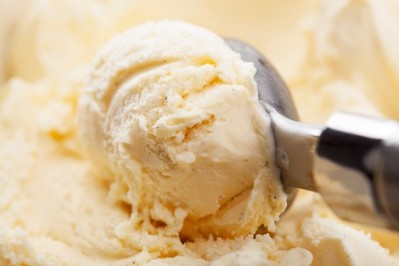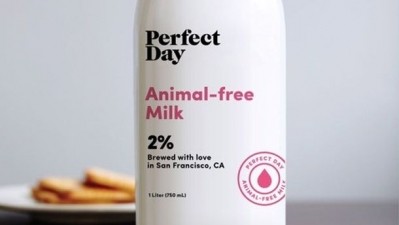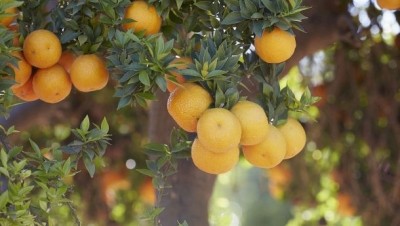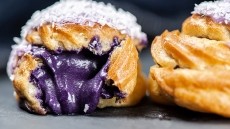Lux Research: Cost, speed & sustainability benefits of synthetic biology will make it a ‘permanent and growing aspect' of flavors market
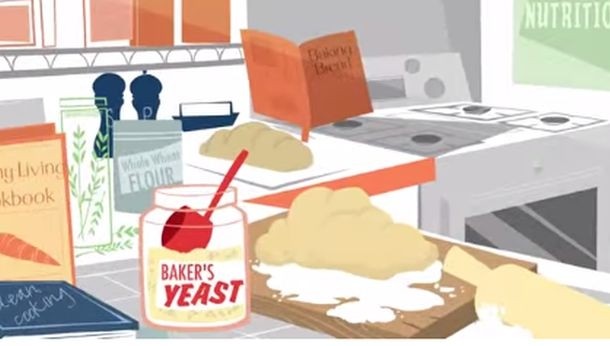
While definitions of synthetic biology vary – and some firms feel the ‘synbio’ moniker is unhelpful – the technique typically involves producing ingredients [eg. flavors, sweeteners, oils] in bioreactors via a fermentation process using micro-organisms such as algae or baker’s yeast with genetically engineered pathways that produce target molecules (eg. vanillin) via the insertion of foreign genes or through non-transgenic gene editing.
While this creates PR challenges, many leading flavor companies are embracing the technology as it is cheaper, quicker and more sustainable than traditional techniques, said Lux: “Currently the industry finds itself in need of innovation, as conventional methods of manufacturing suffer from high cost, low sustainability and high risk of supply chain disruption.”
It added: “Biotechnology tools – such as fermentation and enzymatic transformation – have begun offering a sustainable and natural path, besides the promise of lower cost, in the search for superior flavor & fragrance production methods – though technical challenges remain… We expect to see increasing numbers of compounds commercially produced using these methods.”
Labeling minefield
As fermentation is regarded by the FDA as a natural process that is used to make beer, yogurt and many food ingredients, flavors produced via fermentation are also considered ‘natural flavors’ by the FDA, although many anti-GMO activists believe this is misleading if the micro-organisms used have been genetically engineered.
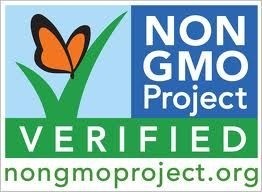
When it comes to non-GMO labeling, however, the situation is more complicated.
For example, Evolva’s vanillin is GMO-free as the genetically engineered yeast used to make it serves as a processing aid, and is not present in the final product, meaning it would not require a GMO label in Europe, or in Vermont, which will introduce GMO labeling in 2016. Therefore, it could reasonably and legally be used in a product labeled ‘non-GMO’.
However, it wouldn’t pass muster with the Non-GMO Project (a widely-used but voluntary standard), which recently said that ingredients produced via ‘synthetic biology’ will not qualify for the Non-GMO Project Verified stamp (click HERE).
The global flavors & fragrances market
- F&F MARKET IS HIGHLY CONSOLIDATED: Five companies (Givaudan, Firmenich, IFF, Symrise, Takasago) account for nearly 60% of the $25bn global market for flavors & fragrances, while the top 10 account for 80%.
- TRENDS: Consumers want both novelty and nostalgia when it comes to flavors, says Lux Research.
The vanillin molecule we are making is the same. It's chemically identical
Friends of the Earth (FoE), meanwhile, recently cited “growing concerns about the possible impacts of synthetic biology organisms on human health and the environment” (click HERE for more details on FoE's concerns).

In an interview with FoodNavigator-USA last year, Neil Goldsmith, CEO at synthetic biology pioneer Evolva, said that from a safety perspective, Evolva ingredients such as vanillin have gone through the rigorous FEMA GRAS process (ie. independently determined to be safe by the Flavor and Extract Manufacturers Association expert panel).
But even if this doesn’t reassure people, he observed, there is no logical reason why Evolva’s vanillin should be any less safe than vanillin from a vanilla pod, petrochemicals, paper waste, clove oil, or rice bran,as the net result is the same, he pointed out.
“The vanillin molecule we are making is the same. It's chemically identical. The only way you can tell the difference is if you were to do carbon isotope testing.”
Who is using new microbial fermentation techniques for flavor production?
Amyris – (flavors, fragrances, etc) partners include Firmenich, IFF, Givaudan and Takasago
Evolva – (stevia, vanillin, saffron, nookatone, sandalwood oil, resveratrol etc) partners include Cargill, Roquette, Ajinomoto, and IFF
Oxford Biotrans – (nookatone, valencene)
Ginkgo Bioworks – (undisclosed sweeteners, flavors etc)
Isobionics - (nookatone, valencene, beta elemene, sandalwood, patchouli) partners include DSM
We’re not ‘printing fake DNA'
By understanding how plants turn sugar into desirable compounds, which is “via a cascade of enzymes that are themselves made by a cascade of genes”, he said, Evolva can work out how to biosynthesize these compounds via a fermentation process in which it inserts genes into the native DNA of baker’s yeast.
He adds: “We synthesize genes as part of that process, but we’re not ‘printing fake DNA’. All genes are just sequences of data and these sequences change all the time in nature anyway.”
Evolva’s vanillin, meanwhile, is a ‘greener’ alternative to synthetic, petro-chemical-based vanillin (the overwhelming majority of vanillin is currently made from petro-chemicals such as guaiacol, not vanilla pods) and is not competing with natural vanilla extract, he said.
Evolva: The pipeline
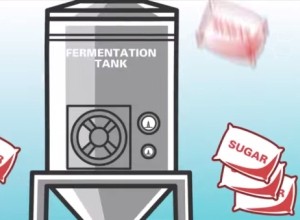
Evolva - which posted a CHF 17m loss on a 66% rise in revenues to CHF 8.3m in the first six months of 2015 and is looking to raise CHF in new capital in the coming months - said it had a “pipeline full of projects that will support our top and bottom line over the coming years”.
Its strategy is to build a portfolio of ingredients for use in food, supplements, personal care and other markets, with some being directly commercialized by Evolva, and others via partners. Highlights include:
Resveratrol: Evolva has signed several distributor agreements, with a focus on dietary supplements, and recently came close to “selling out” as demand exceeded expectations. It has also introduced a new yeast strain capable of producing resveratrol twice as efficiently.
Vanillin: Available since mid-2014 via IFF.
Nootkatone: Launched into flavor and fragrance applications in August, awaiting reg. approval for use as insect repellant.
Valencene: Launch planned before the end of 2015.
Stevia: Evolva and partner Cargill – which has had encouraging results after testing fermented stevia in tea, berry water, lemon-lime soda and cola - are preparing for a commercial launch in 2016, said Evolva: “Plant-derived steviol glycosides still have cost, taste and formulation limitations that have hindered broader market adoption and larger global sales. Evolva believes its fermentation-derived stevia product will help remove these limitations and, as a result, unlock stevia sweeteners’ true global market potential.”
Saffron: Evolva expects fermentation-derived saffron to be available for commercial launch in late 2016.
Ruby: Evolva is working on ‘Ruby’, a family of “structurally related ingredients with applications in food, personal care and other markets”. A food ingredient produced by the yeast strain under development will be commercialized by Roquette.
Plus…Sandalwood oil, Agate, Opal, Agarwood, Coral, Tourmaline, Ergot alkaloids, and Vanadium (get full details HERE).
Read more about Evolva HERE and HERE, and read more about the Lux Research report: ‘Eau d’coli: Application of Biotechnology in Flavors and Fragrances'
Vanillin production
Vanilla beans: Only a fraction of the vanillin produced globally is extracted from vanilla beans as it takes c.500kg of vanilla pods, corresponding to the pollination of 40,000 vanilla orchid flowers, to make 1kg of ‘natural vanillin’. Prices vary but are often well over $1,000/kg
Petrochemicals (guaiacol): Most vanillin is synthesized from guaiacol. Prices can be as low as $20/kg.
Paper waste (lignin): Vanillin can be made from lignin, a byproduct of paper-making. However, it is not considered 'natural'.
Fermentation from ferulic acid from rice bran or other crops: Solvay, which uses a naturally-occurring yeast and ferulic acid to make its vanillin, says its vanillin can be labeled as a natural flavor in the US and Europe.
Fermentation of baker’s yeast: Evolva has developed a fermentation process using genetically engineered baker’s yeast to convert sugar into vanillin. The FDA has not developed any specific legislation pertaining to ingredients made using synthetic biology, but says flavors produced via microbial fermentation can be called ‘natural flavors’.

